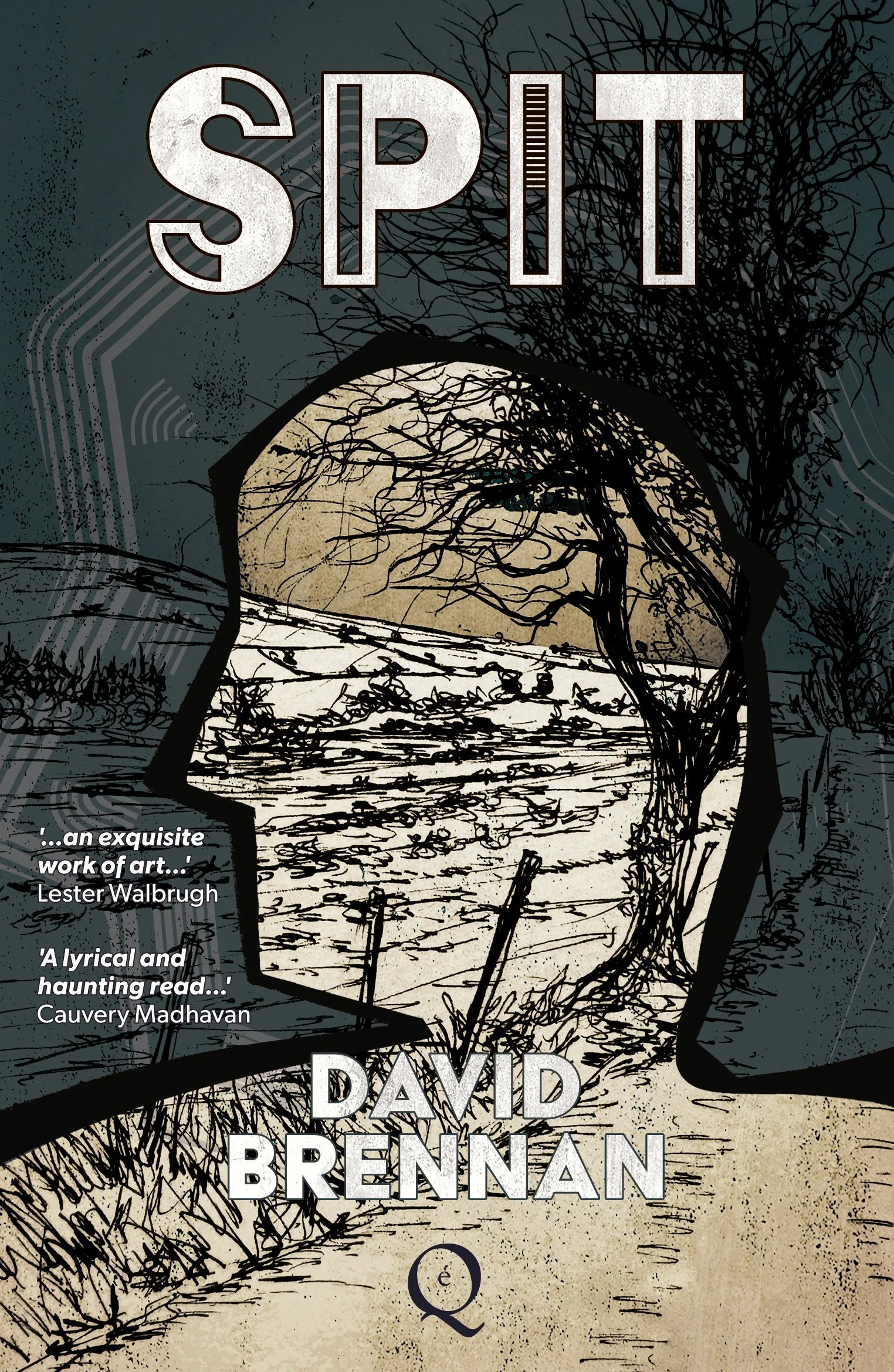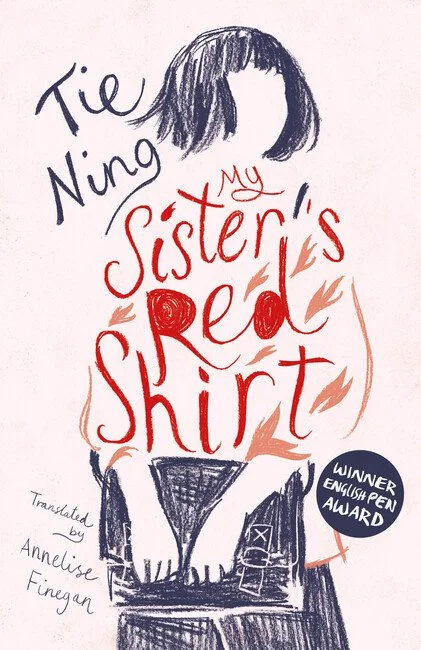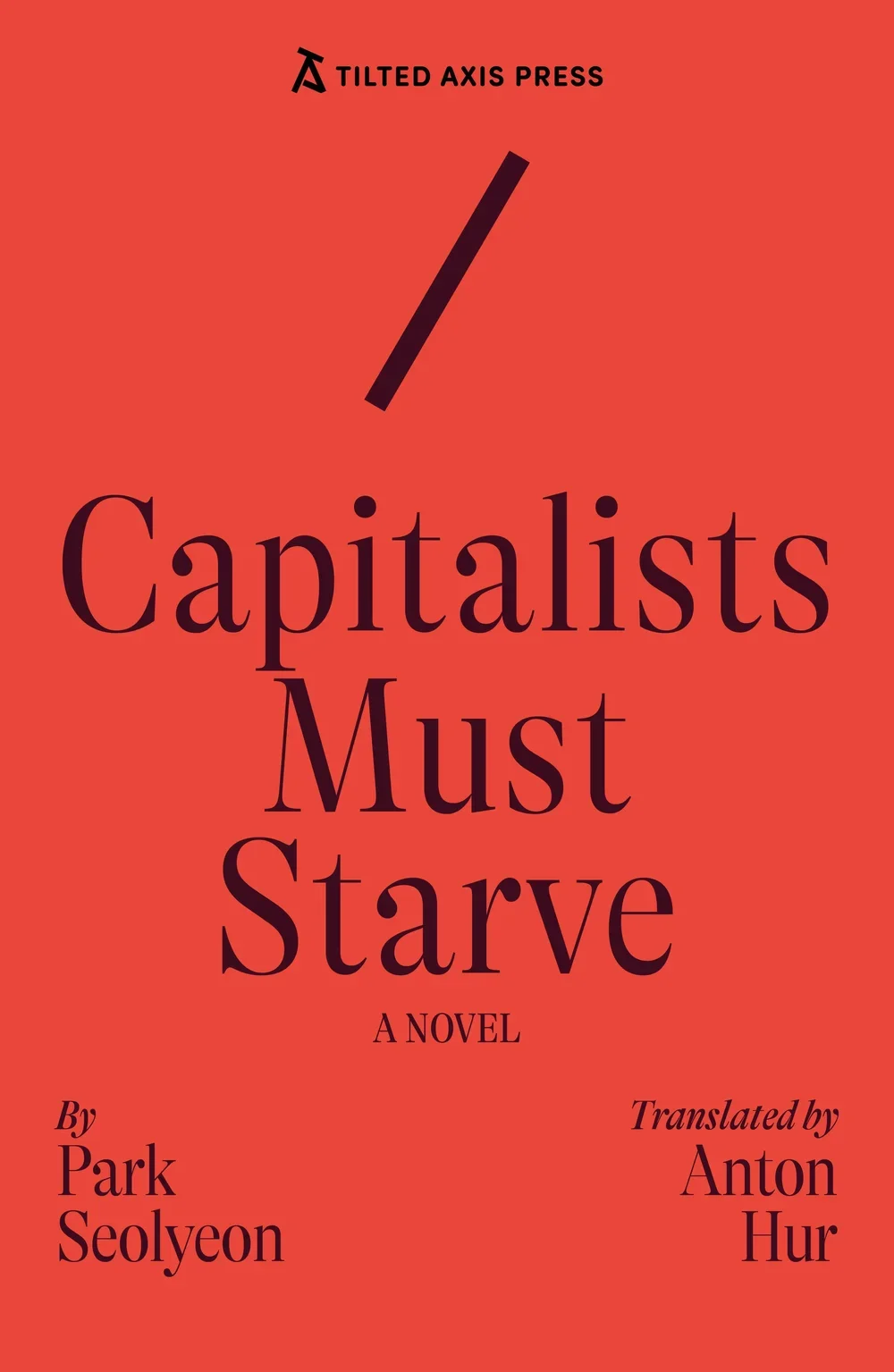2025 Books of the Month
Click here To read about why subscriptions are so important to us, FAQ’S, & more.
Without further ado…
January
-
Supernatural stories of life in the fissures of disaster.
-
Founded in 2020 by Brekhna Aftab and Farhaana Arefin, Hajar Press is an independent and proudly political publishing house run by and for people of colour.
Hajar was born out of our frustration with the publishing industry’s structural problems—institutional racism; commercial trend-following; Amazon’s domination; and the atomisation of readers and writers—as well as with the lack of internationalism and antiracist solidarity within many of our political movements.
We aim to build a community for people of colour, who are too often excluded from both these worlds: mainstream publishing and many conversations on the left. By writing on our own terms, we want to honour our histories, imagine new horizons and strengthen our collective power.
February
-
Joint Winner of Weatherglass Books Inaugural Novella Prize, chosen by Ali Smith.
Ali write about Aerth, “What planet are we on? Can we leave? Does it mean we can never go home again if we do? What does a phrase like worlds apart really mean? Deep-forged, witty and resonant, this dimensionally stunning novella deals with dystopia and hope in a way that reveals them as profoundly related. A work of real energy and narrative grip, brilliantly earthy and airy at once, it blasts open a reader’s past/future consciousness and taps into literary antecedents as disparate as Hardy and Atwood. Funny, terrifying, humane, this is a thrilling journey in a story the size of a planet – no, the size of several, all of them altogether strange and uncannily familiar.”
-
Weatherglass Books is a new independent press founded by Neil Griffiths (novelist and founder of the Republic of Consciousness Prize for Small Presses) and Damian Lanigan (novelist and playwright).
Weatherglass was founded on a shared love of Penelope Fitzgerald’s The Blue Flower and a shared fear that it wouldn’t find a publisher today.
Weatherglass Books wants to clear a space for the next The Blue Flower.
“Running the Republic of Consciousness Prize I read hundreds of novels from small presses and loved a great many, but I did feel an absence of novels that were somehow exquisite at the simplest level: great story-telling built up from beautiful sentence-making.” Neil Griffiths, co-publisher
"We’re looking for intelligent, original, beautiful writing, and we're finding it. Additionally - maybe it's a reaction to the unhinged, fictional-seeming times we live in - we find writers trying to be truthful. It's a fascinating combination: writers who have extraordinary things to say, and are saying them with energy and style, whilst also trying to express something real and true about the world. It's bracing and exciting. It feels like the perfect time to start a literary press.” Damian Lanigan, co-publisher
March
-
Wadih Saadeh was fated to wander. He moved between exiles, from Beirut to Europe, until the earth entire became an exile. And his poem migrated with him, roaming through the city streets where the finest and cruelest scenes life has to offer may be seen, then into and through his own body, from where he contemplates himself in order to contemplate the world: two illusions, in opposition and insoluble. Poetry may be this perpetual voyage through senses and memories, but it is like the travelling of dreamers, it has no road. And like most wandering poets whose childhood waits for them in their future, Wadih Saadeh constructed a house out of his: a home for his soul with his mind stood on the threshold, on guard like a figure in a fairy tale. His poem is an open house, to which he hosts he invites the animals of Mount Lebanon, its flowers and insects, the mad and homeless and gypsies, departed relatives and fellow poets, both dead and alive, the whole world. The poet set up home in this house until he disappeared into it, and here, from his concealment, he brings language back to the simplicity of the first questions… only that his gaze is that of someone who knows that nothing he sees will he ever see again. Return is another illusion. Everything that is written is a beautiful gift, offered to the absence of those he loved. He is recovering, in that vast invisibility, some part of what once was then disappeared. The moment of its loss is complex, an entanglement of weightlessness, joy, and grief: grief, because the end is forever at the point of arrival and the process of departure is never-ending; joy, that the end has come at last to relieve him of the burdens of his past, his fears and fury and pleasures; and weightlessness, because the poet owns nothing, not even the word they write. His word belongs first and foremost to the dead, his father among them:
During the war, my father went searching the wilderness for a bone, that he might crush it with a stone and sate his hunger / From the lineage of that crushed bone came children, of which I was one. I was the son of a crushed bone.
Golan Haji -
Tenement Press is an independent and unfunded publications project dedicated to the championship and promotion of experimental literary works—in English and first-time English language translation—wherein which the poetic and the political intersect.
April
-
Ari, Eleni and Hesper meet one summer at Golden Apples Farm in rural California, where the charismatic Lee, an apple farmer and cook, runs an alternative therapy programme for young women suffering from eating disorders. A year later, they reunite to testify at his trial.
Their individual and collective stories build into a multifaceted picture of trauma and survival in this psychological thriller infused with magic realism. In sensuous, hypnotic prose, Wilder captures the magnetic pull of forbidden fruit.
-
Founded in 2014 by a French translator working and living in London, Les Fugitives began as an informal collective of benevolent contributors, including Laura Carlin and Anaïs Mims for illustrations, Charles Boyle for typesetting, Dominic Lee for design and photography, Angeline Rothermundt for editing and proofreading, and, for the many tasks involved in keeping this press alive, Feya Dervitsiotis, Ellen Dunston, Dominic Jaeckle, Jennifer Obidike, Daniella Shreir, Jessica Spivey, and Leyla Yilmaz, among others.
may
-
Welcome to Spit, where Danny Mulcahy is losing the run of himself, and where, as he and his friends dream of escaping small town life, an unexpected death sets the rumour mill into motion.
Suffering an unexplained, perpetual banishment the Spook of Spit is watching everyone and everything - nothing goes unnoticed. Bearing witness to the villages half-truths and suppressed secrets, fragments of its own dark and obscured history are unveiled.
As events spiral out of control, the past, present and future are set to collide. Can there be redemption for past deeds? How do you escape when you are fated to remain? What does it take to break free from the confines of Spit?
-
Epoque press was founded in October 2017 with the aim of publishing great literary titles by authors from diverse backgrounds who may have been overlooked by the large global publishing houses. As part of this we also set up an online arts magazine, our é-zine, with the aim of connecting artists working in different mediums, in the hope it would stir the wider pot of creativity.
Like all good ideas, époque press was birthed in a local Brighton Coffee Shop/Pub, with the initial thought process quickly scribbled down on a till receipt.
The press is run by two life-long friends, Sean Campbell (MD and Editor in Chief) and Adam Bentley (Art & Print Director), both of whom have a lifelong passion for the arts and literature. We also have a great team behind us who help with submission reviews and the editorial process, as well as always being on hand to help serve wine at our book launches.
Everything we do, apart from physically printing the books, we do ourselves. This involves our own website design, cover design and typesetting, and we focus on delivering the highest quality in everything we do, and we hope you can see the results of this through our titles and our é-zine.
We pride ourselves on working closely with our authors, we involve them in every stage of bringing a book to publication and we pay royalties that are fair and representative of the work involved in writing and publishing a book.
All of our publishing decisions are based solely on the quality of the work and we are not motivated by commercial considerations, although of course we want our press, and our authors, to financially succeed.
If you feel so inclined, you can help us continue with our é-thos by buying us a coffee, we certainly like to keep our caffeine levels up so we can keep on top of working with all of our great authors.
JUNE
-
A girl is struck down by polio during the terrifying epidemic of the early 1950s. Paralysed and unable to breathe on her own, she is committed to hospital in Copenhagen and placed in an iron lung. Forty years earlier, near Budapest, a child grows up in an orphanage for boys. The child goes by the name of ‘Boy’ but is not like the others, as their body seems to transcend the categories of boy or girl. Between these two young people, there is a powerful, enigmatic bond that stretches across time and space.
Translated from Danish by Hunter Simpson.
-
Founded in 2008, Peirene have been a key player in the thriving UK independent publishing scene for over a decade, publishing books from 25 countries and 20 different languages. Traditionally a publisher of European novellas in translation, they now publish writing from all over the world and are expanding their list to publish literary fiction of all shapes and sizes. Their books are regularly listed for significant UK literary and translation prizes, including the International Booker Prize, and in 2023 they won the Dublin Literary Award with their book Marzahn, Mon Amour by Katja Oskamp, translated from German by Jo Heinrich.
july
-
Two sisters, two generations
Growing up in a glittering new decade of possibility, Anran is radically different to her sister. Outspoken and idealistic, she relishes in challenging hypocrisy, unlike the older Anjing, whose memories of a turbulent past remind her of the perils of going against the grain.
When Anran is gifted a stylish red shirt that becomes the talk of their sleepy hometown, adolescent delight is construed by her cynical teachers as another act of defiance. As they decide the young firebrand’s future, certain lessons can’t be avoided. Should Anjing shield her sibling from life’s hard truths, or will she let her blaze her own path?
First published in China in 1984, Tie Ning’s bestselling coming-of-age novella depicts the loss of innocence and the challenges of being true to yourself in an era of unpredictable transformation.
-
Sinoist Books is a publisher of diverse narratives from Sinophone communities around the world, from mainland China to diaspora writers. They publish modern classics from some of the best known authors within China, as well as up-and-coming novelists emerging onto the global literary scene for the first time. They publish literary fiction, genre-bending historical and crime fiction, as well as a small range of children’s literature.
Their books confront the omissions of historical narratives, precarity in a rapidly changing world, and contradictions within questions of culture and identity. In doing so, they believe the books provide a window onto global issues through the perspective of the other, while revealing the vibrancy of contemporary Sinophone literature. Their books can be shocking, hilarious or tragic, but they always defy expectations.
august
Cold Toast by Kathryn Aldridge-Morris
Dahlia Publishing
-
Rooted in 70s and 80s Britain, this evocative flash fiction collection captures the moments when girls and women first glimpsed their own power – or lack of it.
Set against a backdrop of smoky kitchens, playground politics, and flickering TV sets, these stories trace the quiet rebellions and uneasy compromises of lives shaped by expectation and constraint. Two women swap secrets at the school gates about an unfaithful husband. A father trades his daughter’s first kiss for a fishing trip. A girl becomes convinced the silent calls to her home are from the Yorkshire Ripper.
By turns tender, raw, and defiant, this collection lays bare the tension between freedom and conformity, love and survival, and what it meant to come of age in a world that wasn’t always ready for you.
-
Dahlia Publishing is a small independent publishing press based in Leicester. They publish contemporary, original fiction and champion regional and diverse voices. Dahlia Publishing was established in 2010.
As a small press, they undertake most of their publishing jobs in house and are often under-resourced to do the things they love. For this reason, they can only publish what they really, really love. They publish 2-4 books each year and continue to build new audiences through our projects, The Asian Writer and Leicester Writes.
Their diversity policy is at the heart of everything we do and they’re passionate about pushing for change. They would love the industry to be more reflective of the multicultural society they live in.
Since their early beginnings they’ve worked alongside local universities to offer aspiring editors an opportunity to gain an insight into how publishing works. They’ve offered work-shadowing and mentoring opportunities to students at Loughborough University. More recently, they have been working alongside the English department at the University of Leicester, to offer e-placements for second-year students. They aim to build a supportive and inspiring community for writers where creativity can thrive.
SEPTEMBER
Mistress Koharu by Noboru Tsujihara, tr. Kalau Almony
Honford Star
-
Akira, a meticulous editor at a major publishing house inTokyo, harbors a secret: he lives with Koharu, a Hungarian-made love doll. Each night, he speaks to her and finds a long-sought solace in her presence—a comfort he cannot attain even in the arms of real women in his life.Things only improve when Koharu breaks free from her role as a love doll and starts speaking and moving on her own, transformed into the perfect wife.
But when a new woman enters Akira’s life, everything changes. A single confession to Koharu about his attraction sets off a chain of disturbing events that spiral into the unexpected.
-
Honford Star is committed to bridging literary worlds, celebrating the richness of East Asian literature. Their goal is to respect the authenticity and diversity of these narratives, bringing them to a global audience through collaborative partnerships with skilled translators, artists, and designers.
october
Capitalists Must Starve by Park Seolyeon, tr. Anton Hur
Tilted Axis Press
-
Winner of Hankyoreh Literature Award
Set against the backdrop of Japanese-occupied Korea, Capitalists Must Starve follows a sharp-tongued, big-hearted heroine who dares to love, rebel, and carve out space for working-class women in a world determined to silence them. Echoing the unflinching narratives of Alias Grace and the sweeping historical vision of Pachinko, this feminist historical novel balances raw grit with unexpected tenderness and a defiant streak of dark humour.
A stirring portrait of resistance from below: fierce, funny, and full of fight.
-
Tilted Axis Press is an independent publisher of contemporary literature by the Global Majority, translated into or written in a variety of Englishes.
Founded in 2015, their practice is an ongoing exploration into alternatives - to the hierarchisation of certain languages and forms of translation, and the monoculture of globalisation.
november
Saints by Tim MacGabhann
Scratch Books
-
Nine breathtaking, gripping and oddly sublime tales of narcos, cops and addicts in
modern-day Mexico. Gritty hard-boiled tales shot through with the hallowed light of
the miraculous, written in MacGabhann’s pyrotechnic exhilarating prose.
A constellation of rich, vivacious stories of sewer diving, ghosts, a falling satellite and
vengeful pigs.
-
Scratch Books are named after a strange sensation - the feeling of stroking the soft fur of a cat, to discover later as it walked away, that it scratched you. Which, for them, is what a short story is about.
December
Agonist by U.H Dematagoda
Hyperidean Press
-
A volume of experimental prose/poetry written about, and by, the internet: “A feverish confrontation with the internet as digital palimpsest, a fragmented discourse upon its banal diabolical passions; hatred, humour, cruelty, obscenity, lust and poetry - often absurd, sometimes sublime. AGONIST speaks to the maddening anomie of the technological present, teetering on the spectral boundary between tedium and inspiration, image and text, contingent and absolute…framed by our tenuous presence against the all-encompassing void.
-
Hyperidean Press aim to discover and promote writing that recaptures something of the febrile vitality of the early twentieth century avant-gardes. They believe original work which reflects that impulse to explore the variegated experiences of modern life, from the abject to the sublime, still exists and is waiting to be discovered.












